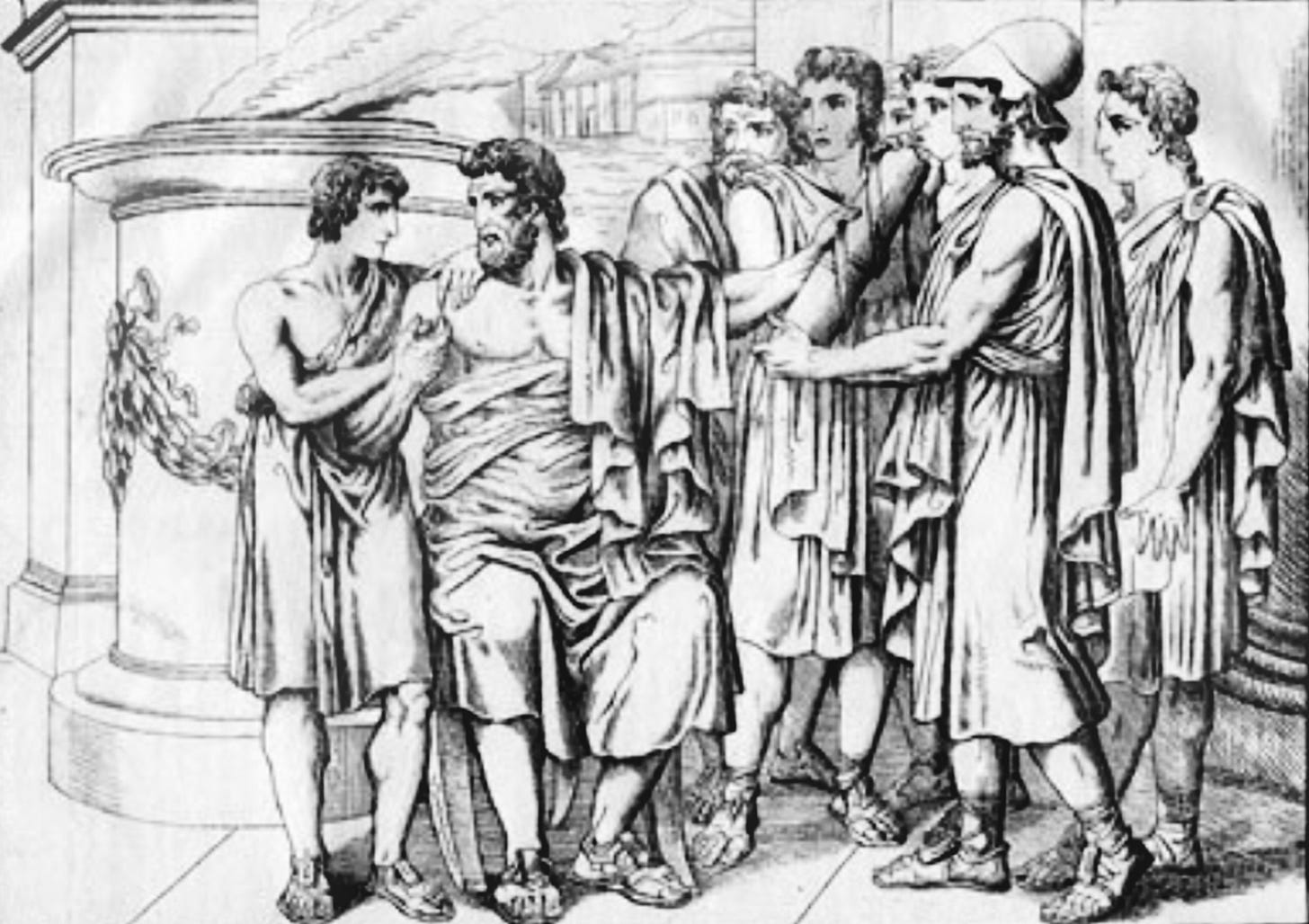On Mythos
Η γλώσσα κόκαλα δεν έχει, αλλά κόκαλα τσακίζει (the pen is mightier than the sword)
Wine and children speak the truth. - Greek Proverb
It begins in Greece. Lycurgus sets the groundwork for others to build upon. Thales, Socrates, Plato, Aristotle, Xenophon and so on. The Greek Mythos is an astounding compendium of gods, parables, and life lessons. The West has been erected on the foundation of myth and law, the dance between the irration…



